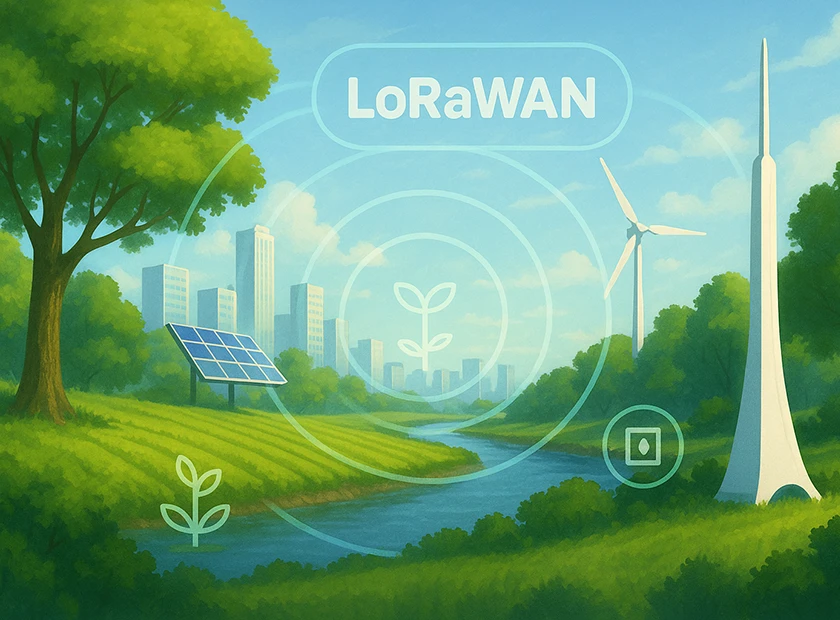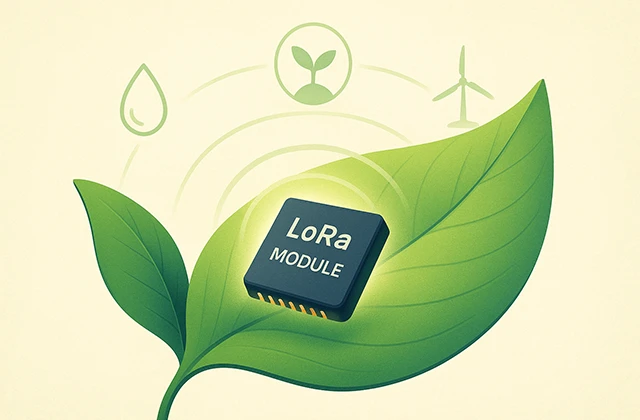How LoRa Technology Cultivates a Greener Tomorrow

Our insatiable appetite for connection fuels an explosion of devices, painting a complex picture against the backdrop of urgent environmental challenges. We demand more data, more automation, more convenience – yet our planet desperately needs less consumption, less waste, less strain. Is it possible to reconcile these demands? Can technology, often seen as part of the problem, genuinely contribute to a sustainable future? The answer lies, surprisingly, in whispering data across vast distances with minimal energy, a capability championed by technologies like LoRa.
At the heart of LoRa (Long Range) technology is an exceptional design philosophy: achieve robust, long-distance communication while sipping power. Unlike Wi-Fi or cellular networks that require significant energy for constant connections and high bandwidth, LoRa and LoRaWAN (Low Power Wide Area Network) protocols are optimized for sending small data packets intermittently over many kilometers. This translates directly into tangible environmental benefits. Devices equipped with LoRa modules can operate for years on a single small battery. Imagine the reduction in battery production, disposal, and the associated chemical waste compared to devices needing daily or weekly recharges. This inherent energy efficiency makes LoRa a cornerstone technology for sustainable IoT deployments.

Green Energy LoRa Modules
The low-power, long-range nature of LoRa unlocks powerful applications directly benefiting environmental protection and resource management. Consider smart agriculture: LoRa sensors deployed across vast fields can monitor soil moisture, nutrient levels, and micro-climates with minimal energy draw. This data allows farmers to optimize irrigation and fertilizer use, drastically reducing water consumption and chemical runoff, protecting local ecosystems. Similarly, LoRa technology is ideal for remote environmental monitoring – tracking air and water quality in sensitive areas, monitoring water levels to predict floods or droughts, or even non-invasively tracking wildlife migration patterns. Building these crucial monitoring networks becomes feasible and sustainable thanks to the efficiency of LoRaWAN. Fewer gateways are needed to cover large areas compared to shorter-range tech, further reducing the infrastructure footprint and associated energy demands of the LoRa network itself.
Recognizing this immense potential for positive environmental impact, initiatives like Elecrow's LoRa Modules Giveaway and PCB Assembly Sponsorship (as detailed on their blog) are incredibly valuable. They empower the innovators – the students, hobbyists, and engineers – who are dreaming up the next generation of eco-conscious solutions. By providing access to LoRa modules and manufacturing support, Elecrow is directly fueling the development of projects that leverage LoRa technology for applications like smart farming, pollution monitoring, resource conservation, and more. This isn't just about free hardware; it's about cultivating a community dedicated to using LoRa technology responsibly and creatively to address real-world environmental problems. Getting powerful, efficient LoRa tools into the hands of creators is a vital step towards scaling these green solutions.
The path towards a sustainable future requires innovative thinking and tools that align with ecological principles. LoRa technology stands out as a prime example of how connectivity can be achieved responsibly. Its ultra-low power consumption and long-range capabilities minimize environmental impact while maximizing the potential for effective resource management and monitoring. As we strive for a world that is both intelligently connected and environmentally sound, embracing and supporting the development of LoRa-based solutions, like those encouraged by Elecrow's program, is not just an option – it's a necessity for a greener, more sustainable tomorrow powered by smart, efficient LoRa communication.
